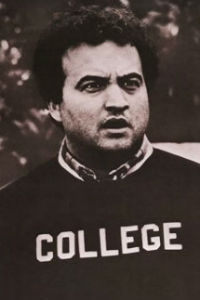To fix PME, decide whether you are training or educating officers -- and do it!

By LTC
Jason Dempsey, USA
Best
Defense department of PME reform
The Scales
and Kuehn
discussion on PME has piqued a long-running interest of mine in the failures
of professional military education (PME). While obviously I am more with Scales
in my overall assessment of the system, I think Kuehn's piece helps frame the
debate because it highlights some of the confusion over the purpose of PME.
Specifically, it seems our colleges cannot decide whether they are in the
business of training or educating. This confusion has led to a muddied
curriculum and a faculty that is required to cover both educating and
training, and which as a result fails to do either one very well. This was
briefly mentioned in the panel comments, but I think deserves further
elucidation as the root source of the failure of PME (and I'll limit my focus
here to CGSC).
For
starters, let's look at the faculty. These are typically officers on the verge
of retirement who have been out of the operational force for several years and
are interested in academia, but have not yet completed advanced degrees or had
any classroom experience outside of the military system. This places them on
the fringes of both the operational force and academia. Yet we ask them to
cover both the 'core curriculum' and electives, essentially
guaranteeing mediocrity in both areas. Kuehn's call for a renewed
emphasis on the split between the core and electives portion of CGSC is
refreshing, but doesn't go far enough.
The
'core curriculum' at our service colleges should be restructured with a
singular focus on training officers for the command and/or staff
responsibilities they are about to assume. This is largely the case now, but
the focus should be similar to what occurs at the pre-command courses, where
senior leaders rotate in to provide insights, mentorship, and current
operational perspectives. At CGSC this would mean that commanders and their
staffs at the brigade and battalion levels would be the ones rotating in to
instruct and to facilitate scenario-driven staff exercises. This would ensure
that students received the most relevant training available while reinforcing to the officer corps the importance of taking the time and effort to properly
train the next generation.
As for
the elective portion of PME, at least at CGSC, the list of offerings should be
considered an outright embarrassment. Again, because of not understanding the difference
between training and education, valuable time -- that could be spent broadening -- is
instead spent on 'courses' that are mere recitations of doctrinal manuals or
job descriptions and are about as far as you can get from anything broadening
or academically rigorous ('Logistics for the Battalion XO', etc.). This is not
to say that there are not great instructors and courses out there (the history
departments are indeed strong, and I'd be remiss not to tip my hat to Don
Connelly for carrying the torch for the study of civil-military relations).
But, as Kuehn notes, these few good courses are drowned out in a curriculum
that could only charitably be described as vo-tech for field grades. So long as
we aren't kidding ourselves that this is a broadening experience or equivalent
to education, fine, but if we are serious about the need to get officers to
think critically and out of their comfort zone than it is this portion of PME
that needs the most restructuring.
Personally,
I'd be for replacing the elective periods with sending officers off to get one
year graduate degrees -- let the experts in education educate, while the Army
focuses on training. But in the end, no significant reforms will take place until we
recognize the differences between training and education, and decide which our
PME system should focus on.
Lt. Col. Jason Dempsey is
a career infantry officer and a graduate of a couple levels of PME, including
the infantry officers basic course, the amphibious warfare school at Quantico,
and CGSC. He also holds a PhD from Columbia University and is the author
of Our
Army: Soldiers, Politics and American Civil-Military Relations.
Thomas E. Ricks's Blog
- Thomas E. Ricks's profile
- 436 followers



